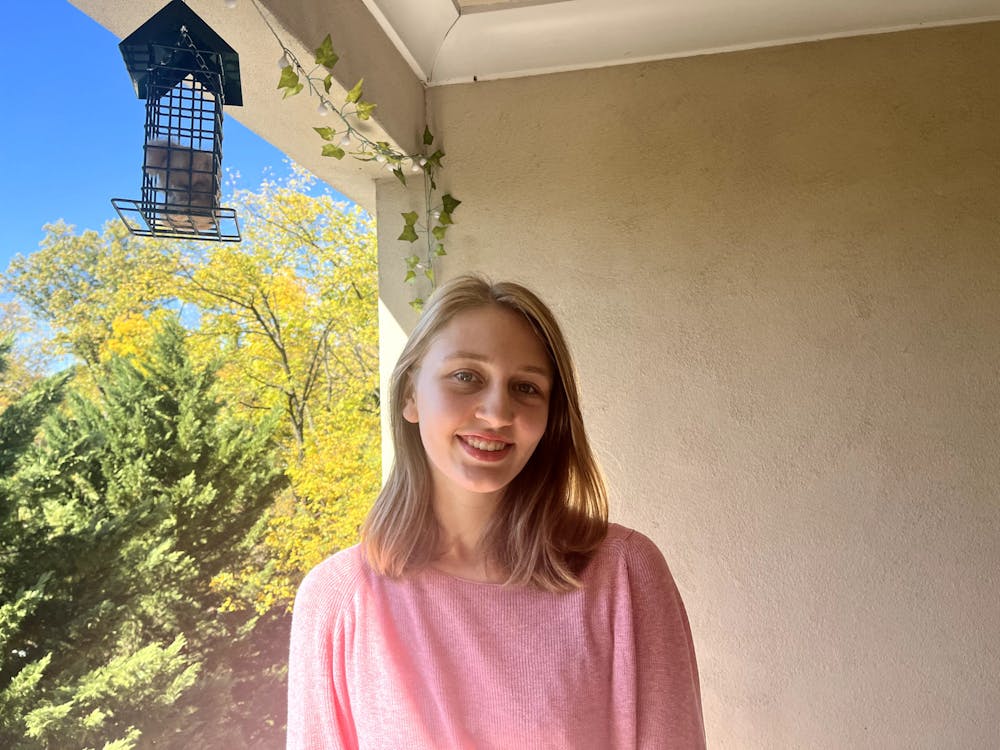When I arrived at the University as a second-year transfer student, I remember being told that my options were endless. I could remain connected with the transfer community and join organizations dedicated to helping other new transfers acclimate or I could ignore it, join other organizations and leave behind the transfer identifier. Personally, I wanted to forget. I wanted so badly to pretend that I had been a “Hoo” the whole time in part because I thought that my life would be a whole lot better if it was true. As I spent my time trying to figure out my place at the University, I slowly realized that ignoring my experiences would not make me more a part of the community, it would only make me feel more alienated.
I experienced a mixture of emotions in those first few months — sadness at missing the first-year experience, fear that I would not be able to handle being a student here and guilt for leaving behind my first university. Often I felt that I was simultaneously too young and too old to be a second-year.
I was living as a first-year learning to refer to the campus as “Grounds” and desperately searching for new friends. But then I felt so old, having been through two institutions at just 19 years old. I worried that it was too late for me to have the university experience I wanted, that I would be stuck as an outsider who showed up late to the party.
It was easy for me to feel a deep jealousy of my peers along with the creeping fear that everyone in my year was already ahead of me — I thought they all had big friend groups, clubs they loved and a clear-cut path to their dream career. I tried to join all kinds of clubs to catch up with the students around me but often found myself with an overstuffed inbox and without the community I craved. The process of trying to join organizations put me into a state of transfer limbo — feeling not quite like a second year but not a first year either.
As much as I wanted to forget the hazy memories of my freshman year of college and pretend that I had gone through a more traditional college experience, I found that I just could not leave them behind. Part of it was my compulsion to explain that even though I was a second year, I wasn’t really a “second year” because it was my first year at the University. Another factor was the guilt I felt whenever I “forgot” to mention that I had transferred to the University. It felt like I was lying to the people around me and pushing away the good memories from my first school.
When I entered my third year — my second year at the University — I started to see things differently. I moved in with friends and found myself with plans most weekends. I became invested in my majors and started to feel more confident in my schoolwork. Most importantly, I realized that most of the people around me — even those who had been here since first year — felt as lost as I did. I started to see my transfer not as a bad thing that made me different from my peers, but as a neutral fact about myself.
Contrary to what my initial imposter syndrome would have me believe, my experiences before coming to the University and the work I put into transferring were the things that helped me succeed. Spending hours every day curating the perfect personal statement for my transfer application meant that I got really good at putting my mind to an assignment and seeing it through. Being thrust into the University late forced me to put myself out there socially in a way that I may not have had I started as a first year. Being ashamed of my background did not do anything to help me find a place at the University, but accepting my past gave me the confidence to start feeling at home in Charlottesville.
When my friends share memories with me from their first year together on Grounds it is always a jarring reminder that I missed out on something. I love my memories of my first school, but I am sad that I missed out on being a first-year. That sadness will probably stay with me for a while, but it isn't debilitating anymore. I still feel the urge to explain that I am only kind of a fourth-year, but I am no longer stuck in transfer limbo.
Now, well into my fourth year, I have had a lot of time to settle into my life on Grounds. I love my majors and I have the friend group I yearned for as a new student. While my experience as a transfer student never leaves me, it doesn’t mean I can’t appreciate the memories I’m making now. I’ve made peace with the sadness and been able to flourish since then. The feeling of being too old for my year has dissipated with time, allowing me to fully feel like a fourth year.
When I first arrived at the University, I saw my freshman year at another school as embarrassing baggage that I just could not hide no matter how hard I tried. I imagined it weighing me down and preventing me from planting roots here. Over my two and a half years here in Charlottesville, I learned which restaurants on the Corner I love, who my favorite professors are and the best bars to spend Friday nights with my roommates. I’ve learned and loved.
As much as I love the University and feel at home in Charlottesville, I will never forget my freshman year experience — and that’s okay because now I don’t want to forget anything at all.







